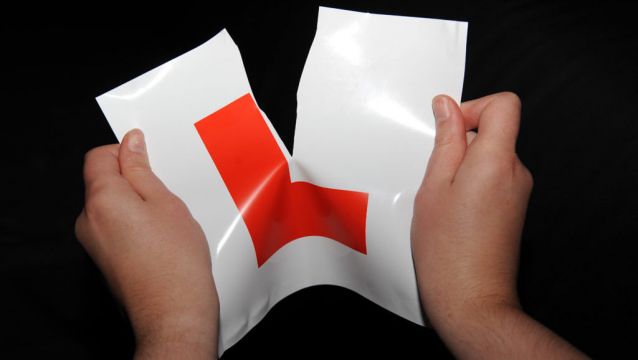Skoda has landed itself in some learner-driver hot water this week, by claiming that its vehicles’ electronic driver aids can help learner drivers pass their test.
Skoda is quoting UK statistics that shows the pass rate for the driving licence test fell to less than 50 per cent between April 2020 and March 2021. According to the data, “failure to maintain proper control of the steering and poor positioning on the road during driving both appearing in the top ten reasons for test failure.”
Well, says Skoda, we can help with that. Even the new Fabia small hatchback has technology that helps to keep the car straight in its lane, while the brand claims: “common mistakes that dashed new drivers’ hopes of getting their licence included not using mirrors correctly, not having control of the vehicle when moving off, and not responding correctly to traffic signs. While assist systems should never solely be relied upon in any situation, the likes of Hill Hold Control and Traffic Sign Recognition can all aid drivers with these frequent faults.”
Support
Astonishingly, given that Skoda is effectively saying here that learner drivers don’t need to learn proper car control and observation skills as long as there are electronics to back them up, the claims are being supported by the Institute of Advanced Motorists, the IAM.
Richard Gladman, head of driving and riding standards at IAM Roadsmart, said: “Features that improve the safety for drivers and other road users are a real benefit to new vehicles like the Skoda Fabia. It is crucial that learners, new drivers and more experienced road users know how to operate these systems and how to get the best out of them. They are like a guardian angel helping in the background, there to supplement good driving decisions and help the driver. Used properly, they enhance and relax the driving experience allowing the driver to enjoy it all the more.”
These comments and claims unleashed something of a storm on social media, with many commentators accusing Skoda and the IAM of allowing learners drivers to rely on electronic aids, rather than learning how to driver properly.
Dim view
In Ireland, the Road Safety Authority (RSA), which is in charge of driver training and licencing, takes a dim view of this promotion of driver aids for learners.
An RSA spokesperson told Breakingnews.ie: “Vehicle manufacturers are continually developing vehicle safety technology to help prevent or reduce the effects of a collision and of course these innovations are always welcome where they assist the driver in being safer on the road. However, when it comes to the Driving Test such Advanced Driver Assistance Systems (ADAS) are not an advantage to the test candidate as it is the driver that is being assessed not the vehicle or its capabilities. For the Driving Test the driver is assessed on their competence to control the vehicle without assistance from any in car ADAS.
“An example of this on the Driving Test would be the rear parking camera. When reversing the vehicle on test the candidates are required to take direct observations (look in the direction the vehicle is moving). They can of course use the reversing camera as an additional assist to direct observations but not as a replacement for direct observations.
"As regards the example given of the benefit to a driving test candidate of a feature designed to assist with proper lane discipline; this would not be of benefit in a normal driving test scenario as at a time where the ‘lane assist’ function would intervene the test candidate would likely be faulted for poor lane discipline by the driver tester.”
When we contacted IAM Roadsmart for comment, their approval of such systems seemed to be walked back a little.
Rebecca Ashton, IAM’s head of policy and research, said: “IAM RoadSmart believes it is important drivers understand how all the technology works and is an advocate of driver training. Knowing your vehicle is important when it comes to staying safe on the road.
"There is not a vehicle on the market where the driver can switch off and expect the car to drive itself, however with technology forging it's way forward we now have some technology that can help us keep safe, if we have the technology why not learn and understand how to use it correctly and safely.

”The driving test which allows those who have passed, to drive without supervision on our roads is constantly changing to keep up with technology, reviewing and improving the driving test to make sure it is correct for the time is something the DVSA do on a regular basis.
"We are certainly not resigned to a diminution of driver standards, we believe the driving test is only the start of a person's driving career and that driving in an advanced manner will improve the safety of the driver and those around them. Knowing how to use the technology and understanding what it does is important, you don’t want anything to take you by surprise.”
While it’s true to say that successive generations of learner drivers have long benefited from improvements in motoring technology — from radial tyres to anti-lock brakes to power steering to improved headlights — it does seem worrying that electronic driver aids are being touted as being of such use to learners.
Surely if you become reliant on such a system while learning, you’ll never know how to operate a car properly if the system fails at just the wrong moment?







